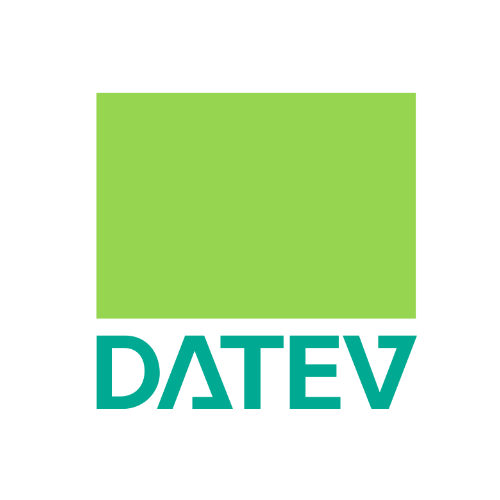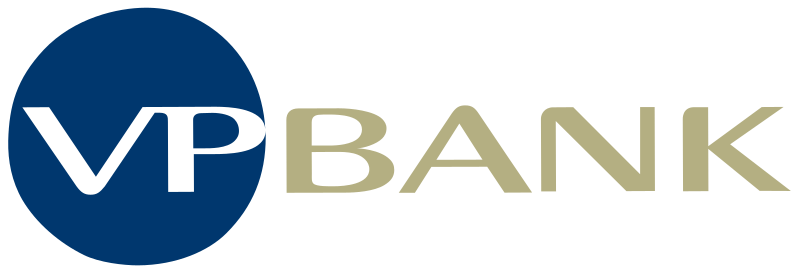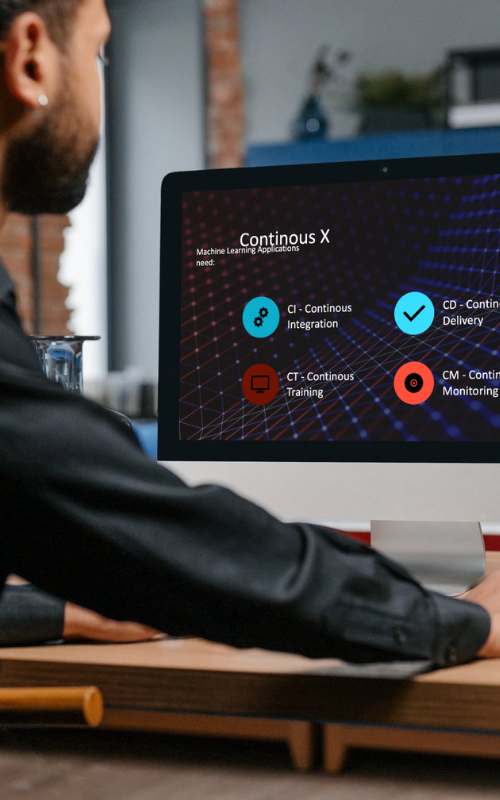Dive into the dynamic world of MLOps and master the art of bringing Machine Learning models to life with this MLOps training course
With our expert-led MLOPS training program,
designed to equip you with cutting-edge skills in modern application deployment and management.
Benefit from our wealth of experience from countless customer projects:






With this MLOps training, you will experience a balanced mix of theory, live demonstrations and practical exercises.
Learn the essential principles and concepts of MLOps, including integration into the DevOps and Machine Learning domains.
Dive into the use of specialized cloud platforms, data versioning and feature stores, the creation and management of ML pipelines.
get to know advanced MLOps tools and techniques, as well as methods for continuous integration and delivery (CI/CD).
In this MLOps course, you will learn the essential principles and concepts of MLOps, including integration into the DevOps and Machine Learning domains, the use of specialized cloud platforms, data versioning and feature stores, the creation and management of ML pipelines, as well as the deployment and monitoring of models. You will also get to know advanced MLOps tools and techniques, as well as methods for continuous integration and delivery (CI/CD).
Practical Applications That We Will Cover in the MLOps training:
- 1Implementing and managing ML pipelines with Kubeflow and Apache Airflow.
- 2Using TensorFlow, DVC, Feast, and dbt in practical exercises to create and deploy ML models.
- 3Applying monitoring and metrics tools like Hydrosphere, Evidently.ai, and Grafana to track data and concept drift.
- 4Hands-on activities for model deployment with FastAPI, Seldon Core, and TensorFlow Serving.
- 5Executing CI/CD processes with tools such as Jenkins, Prefect, Airflow, Rundeck, Kedro, TFX, and Kubeflow.
After the MLOps training course, You Will Be Able To:
- 1Understand and apply the importance of MLOps.
- 2Effectively use machine learning concepts and environments.
- 3Implement data versioning and feature stores.
- 4Create and orchestrate ML pipelines.
- 5Use machine learning frameworks such as Scikit-Learn, Keras, and TensorFlow.
- 6Deploy and monitor models using advanced techniques and tools.
- 7Integrate CI/CD tools and platforms into ML workflows.
The MLOps training is NOT suitable for you if you …
Hear from our satisfied training attendees
A1 Telekom Austria AG
Reinhard Burgmann
Head of Data Ecosystem
Vattenfall
Bernard Benning
BA Heat
„I recently attended Vattenfall IT’s online Kafka training day hosted by Ultra Tendency, and it was an enriching experience.
The trainer, Ahmed, did a fantastic job explaining the theory behind Kafka, and the emphasis on practical application was great. The hands-on programming exercises were particularly helpful, and I’ve never experienced training with so many interactive examples!
Overall, I highly recommend this training to anyone who wants to improve their Kafka knowledge interactively and gain valuable skills.“
VP Bank
Eisele Peer
Lead Architect & Head of IT Integration & Development
“The MLOps training exceeded our expectations!
It offered a perfect blend of an overview, hands-on coding examples, and real-world use cases. The trainer answered all questions competently and adapted the content to fit our company’s infrastructure.
This training not only provided us with knowledge but also practical skills that we can apply immediately.“
Your investment
- Combination of theory and practice with live demos and exercises to actively develop skills.
- Understand the application of DevOps principles in automating the machine learning lifecycle, from data preparation to model training.
- Learn to effectively handle the complexities and challenges of managing machine learning models in a production environment.
Get to know your MLOps training professionals

Marvin Taschenberger

Hudhaifa Ahmed
Senior Lead Big Data Developer & Berlin Territory Manager, Ultra Tendency

Matthias Baumann
Required hardware & infrastructure for your MLOps Training
- You will need a PC or Mac with a web browser and MS Teams.
- During the training, we will provide you with a virtual machine with the required local dependencies, services and root access.
- This VM has a running Kubernetes cluster on which you can test and execute the training instructions.
- You can access the machine via a browser or SSH if you wish and the network restrictions allow it.

